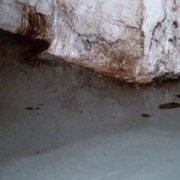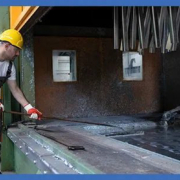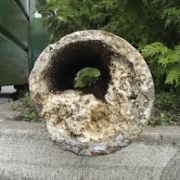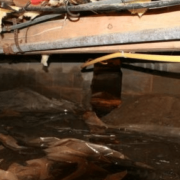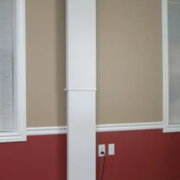Preventing the Growth of Mold in Atlanta During Winter
Mold in Atlanta
Mold spores are everywhere. They are in the air flying all around us. They are perfectly harmless when in small numbers. They become a real problem however, when they are allowed to grow within our homes. Mold in Atlanta in large amounts can negatively affect our health. When allowed to grow in our homes, they can cause a great deal of damage to our personal belongings as well as the structure of our homes.
Factors Contributing to the Growth of Winter Mold in Atlanta
It may seem like mold in Atlanta grows more rapidly during the cold winter months. This is only because the conditions in winter are ideal for the growth of mold. Many of us tend to close ourselves into our homes when the temperature starts to drop. As a result of all the requirements for energy efficiency, our homes are tightly sealed during winter. This can result in trapping of indoors and the rise of humidity levels.
- Warm conditions resulting from the turning up of our thermostats in winter make the indoor home environment perfect for the growth and proliferation of mold.
- Decaying matter around the home resulting from fallen leaves and dead plants result in the release of mold spores into the air. These are spread and settle indoors where they grow.
- Increased humidity as a result of the wet winter conditions provides ideal conditions for the growth of mold.
9 Tips to Prevent the Growth of Winter Mold in Atlanta
1. Keep the surfaces in your home clean and dry.
Don’t give mold spores the chance to settle and grow.
2. Ensure that there is adequate circulation of air.
Open a window when cooking, washing dishes or taking a shower. You can use an exhaust fan if you have one. This will prevent condensation from building up in the home and therefore keep humidity levels low.
3. Ensure that leaky plumbing is fixed in good time.
Ensure that you get a plumber to inspect any leaky pipes or drains. This will ensure that water is not leaking within the home and therefore keep moisture levels down.
4. If you have a crawl space, ensure that you spread a moisture barrier over the soil.
This can take the form of a plastic film or roofing paper made of polyethylene. This barrier will prevent moisture from the crawl space rising and penetrating the floor. This moisture can result in the rise of indoor humidity levels and encourage the growth of mold.
5. Insulate pipes to protect them from the low temperatures during winter.
This will prevent the pipes from freezing and bursting or cracking during winter.
6. Wipe away condensation when you notice it on walls, pipes or windows inside your home.
Ensure that the area is dry and that the humidity is not being caused by a leak or high humidity settings. Open a window to allow air to circulate.
7. Use a dehumidifier.
This can help to reduce the humidity of a room and prevent the growth of moisture.
8. Set the ceiling fan to rotate in reverse.
This will push the warm dry air down to the lower parts of the room. It will not only help you save money in heating bills but will prevent condensation from occurring.
9. Pour out water in condensate pans and ensure that you clean and dry them before replacing them.
This will ensure that the water is not left to stand in the pans.
Ensure that you have a professional contractor check your home for waterproofing. This will ensure that you take all measures necessary to prevent the growth of winter mold in Atlanta in your home. A professional contractor can also advise you on further measures to take to keep your home mold free.
